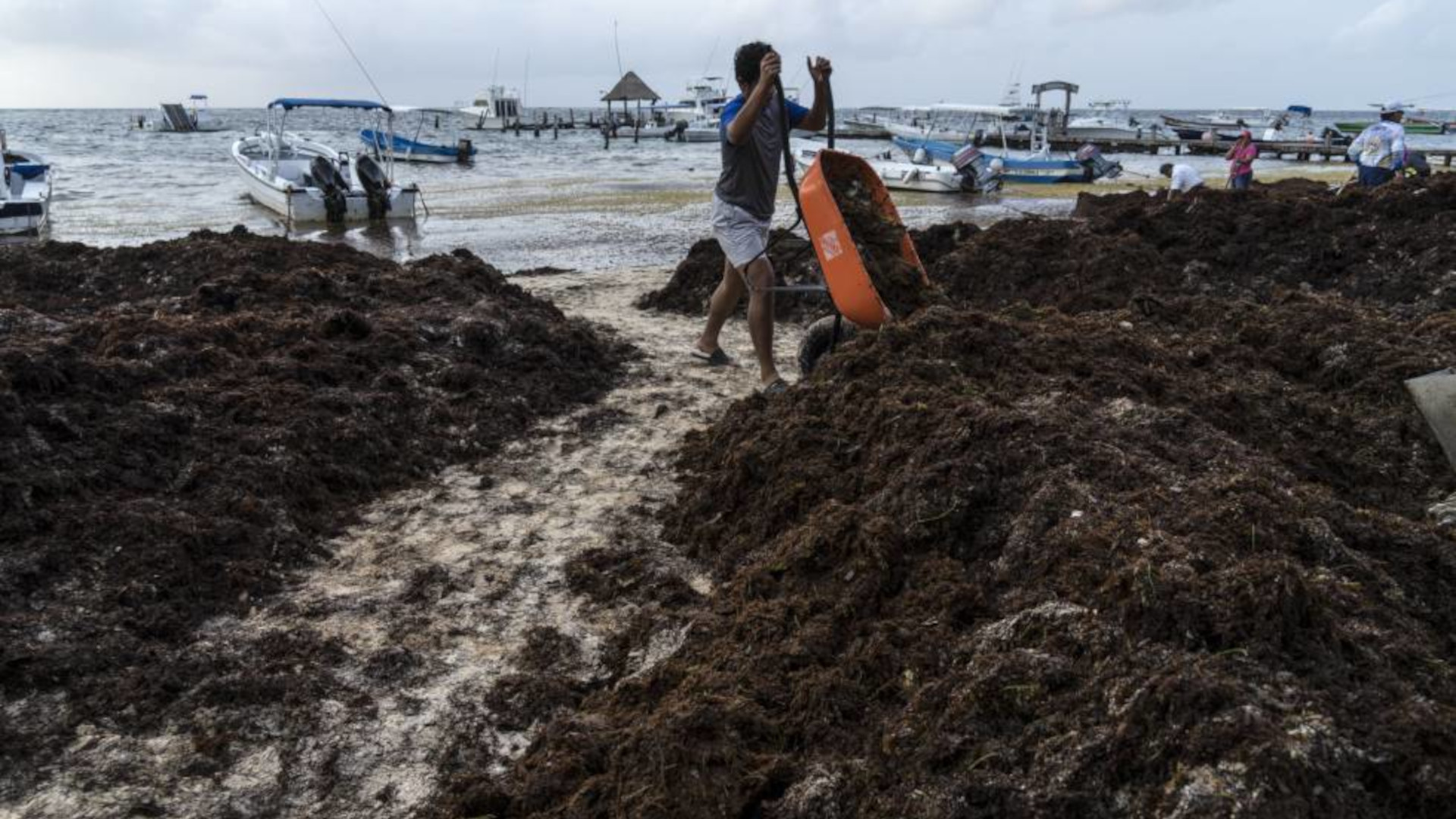Latin America
Related: About this forumSmothered by Seaweed: Sargassum Wreaks Havoc on Caribbean Ecosystems
Smothered by Seaweed: Sargassum Wreaks Havoc on Caribbean Ecosystems
Its growth driven to epic levels by climate change and fertilizer runoff, sargassum puts dozens of species — and people — at risk.

People picking up excess sargassum from the Mexican coast in the Mayan Peninsula. Photo by Gladys Serrano | El País
May 3, 2024 - by Maria Mónica Monsalve (América Futura, El País América) and Krista Campbell (Television Jamaica)
Originally published by Centro de Periodismo Investigativo with The BVI Beacon, The Virgin Islands Daily News, America Futura – El País América, Jamaica and the RCI Guadeloupe.
For more than 20 years, Mexican biologist María del Carmen García Rivas has led a crusade to protect the coral lining the Yucatan Peninsula in the Caribbean Sea. As director of the Puerto Morelos Reefs National Park in México, she has advocated for reforms to reduce runoff and other pollution from coastal development.
She has spearheaded efforts to control lionfish, an introduced species that has put at risk the nearly 670 species of marine fauna that inhabit the park. And since 2018, she has organized brigades to restore reefs damaged by tissue-destroying coral diseases known as white syndromes. But now, yet another threat has been keeping her awake at night: massive blooms of sargassum seaweed reaching the coast of the park.
“When the sargassum, a macroalgae that usually floats, reaches the coasts, it begins to decompose, generating an environment without oxygen that kills different organisms,” she said. “It mainly affects species that cannot move or move very little, such as some starfish, sea urchins, the sea grasses themselves, and of course corals.”
Along the coast of Quintana Roo, the Mexican state where the Puerto Morelos Reefs National Park is based, the local government collected 70 tons of sargassum during 2023 alone, said Huguette Hernández Gómez, the state’s Secretary of Ecology and Environment. Added to what they collected during the last four years, the figure reaches 200 tons.
Regional Problem
This story is familiar across the Caribbean. Though modest amounts of sargassum benefit marine life in the region, massive influxes arriving since 2011 have upset the ecological balance in some areas in ways that could be irreversible. Scientists blame the explosive growth of the seaweed on global pollution, climate change, and other international problems that Caribbean islands did little to cause and lack the political power to resolve.
More:
https://therevelator.org/smothered-by-seaweed/
bahboo
(16,953 posts)the sargassum was godawful.....
TeamProg
(6,630 posts)known that for 50 years or so. When say ‘we’, I mean from educators to corporate lawyers to lawmakers to families and myself when I was 15.
Something doesn’t add up.
flying_wahini
(8,043 posts)The article makes it sound like a losing game.